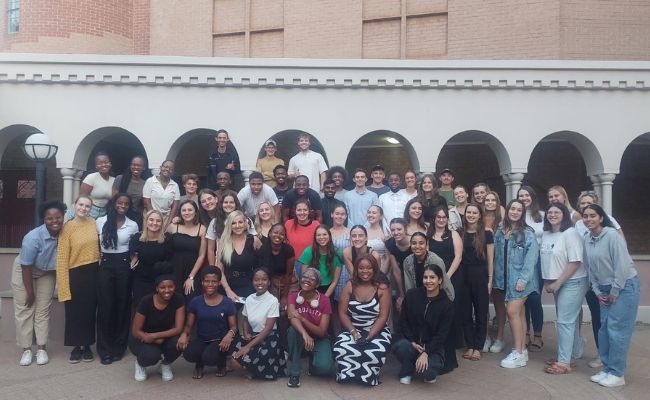In the dynamic marketing industry that exists today, the rise of influencer marketing has transformed how brands engage with their audiences. Influencer marketing involves collaborating with individuals with a significant following and influence on social media platforms, such as Instagram, YouTube and X (previously known as Twitter).
Influencer marketing is one of the fastest-evolving industries in the world. According to Statista, in 2023 the global influencer marketing value stood at USD 21.1 billion, having more than tripled since 2019. In South Africa, advertising spending in the influencer advertising market is projected to reach USD 27.14 million in 2024 and is estimated to increase by 11.6% annually. As such, brands need to recognise the relevance of influencer marketing for success in contemporary marketing practices today.
On 19 March 2024, Tandi Potgieter, an expert in the social media and influencer marketing sector in South Africa, presented a guest lecture to the Marketing Management honours students at the University of Pretoria. Potgieter is the founder and CEO of the ICARUS MEDIA GROUP SA, a Board Member and Communications Director of the Woman of Stature Awards, the co-director of Mrs Soweto (Pty) Ltd and fulfils a Marketing Executive position at MG Attorneys. Potgieter's reputation for excellence extends beyond her managerial and advisory role, as she is also recognised for her mentorship and advocacy efforts within the influencer marketing community. Potgieter has played a pivotal role in shaping the careers and enhancing the visibility of some of the most prominent personalities that exist within the South African influencer marketing sector today.
 Tandi Potgieter with the Honours Marketing Students
Tandi Potgieter with the Honours Marketing Students
Influencers are most valuable for marketers given their unique ability to connect with their audiences in meaningful ways. Promoting products and services through influencers is often perceived as more authentic and credible than traditional advertising. Consequently, influencers can sway purchasing decisions among their followers.
In South Africa, influencer advertising is rapidly growing as brands use local influencers to effectively reach diverse audiences. The diverse nature of South Africa's population allows brands to leverage influencers from different backgrounds, language groups and regions to connect with specific audiences with similar interests. Some of the most common influencers followed by the Marketing Management honours student cohort include previous winners of beauty pageants, such as Miss South Africa, musicians from various music genres and television personalities.
Although there are various classifications of influencers, Potgieter elaborated on five main types, namely: nano-influencers, micro-influencers, mid-tier-influencers, macro-influencers and mega-influencers. A nano-influencer is a person with less than 10 000 followers and high engagement rates, with the ability to form stronger connections with their audience. A micro-influencer is an influencer with a follower count of 10 000 to 100 000. They typically have high engagement rates, are more experienced and have a more niche-specific audience, making them effective for reaching specific demographics or communities. Mid-tier influencers characteristically have between 100 000 and 500 000 followers. They have high brand engagement and are considered to be a more affordable investment over macro- and mega- influencer types. Influencers with 500 000 to around one million followers are referred to as macro-influencers and they have broad reach. They are often experts or enthusiasts in specific niches, such as fashion, fitness or travel. Mega-influencers have over one million followers and generally reflect celebrity status. They influence consumer behaviour through endorsements in various fields, for example, entertainment, sports or politics.
As brands continue to recognise the value of influencer advertising in South Africa, we can expect to see even more innovative and impactful campaigns in the future.
 Tandi Potgieter with the Honours Marketing Students
Tandi Potgieter with the Honours Marketing Students
Get Social With Us
Download the UP Mobile App